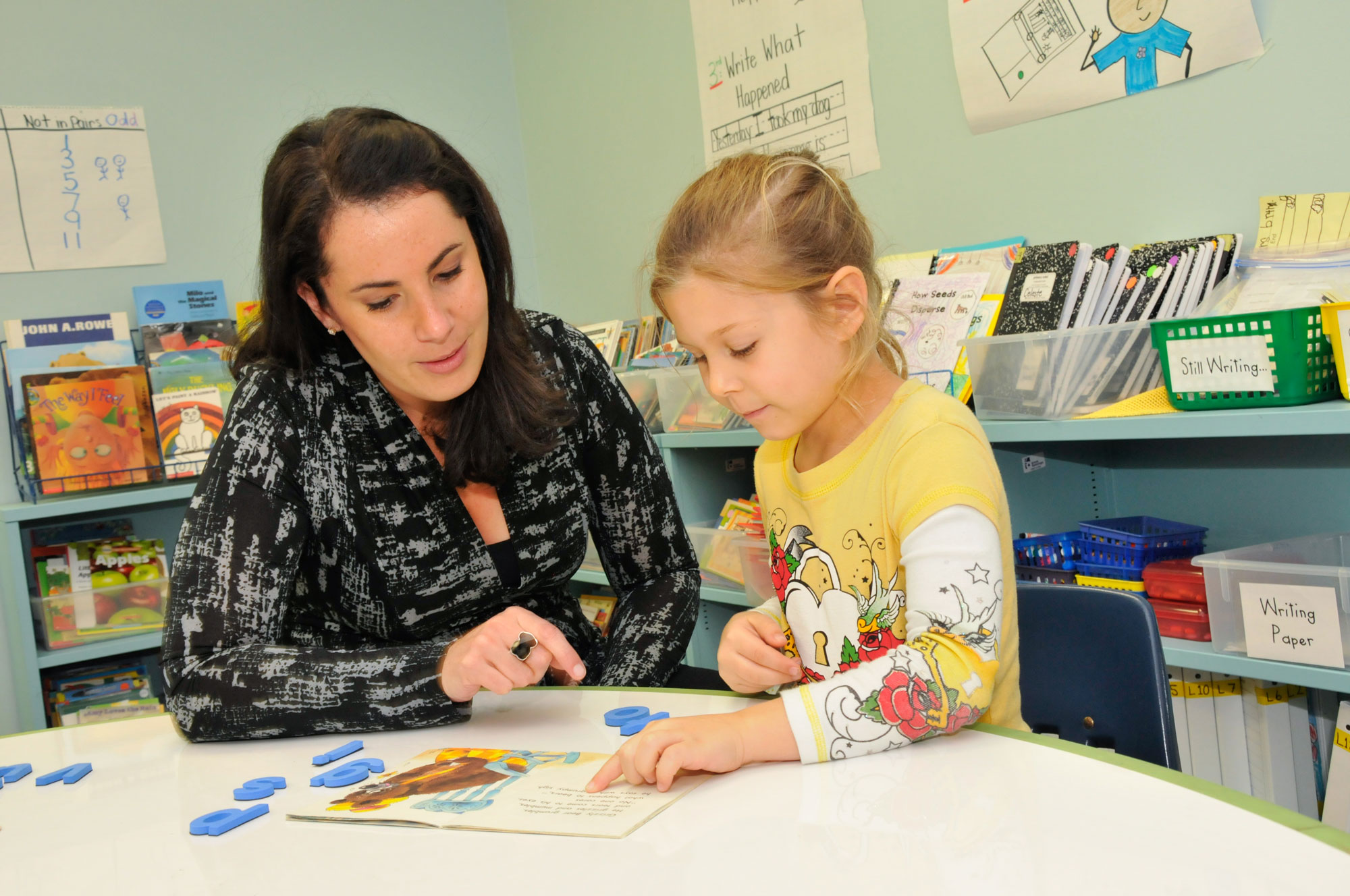
UFLI is the new standard for early identification and intervention for struggling readers, using expansive research and background knowledge to transform student success. The use of evidence-based methods has unlocked student potential and offers teachers and interdisciplinary professionals insight into supporting students.
Keaghan had failed third grade and was falling further behind her classmates. She was reading below first-grade level, had trouble identifying the sounds letters make, and read excruciatingly slow, with little comprehension of what she read.
Last school year she finally received a formal diagnosis: dyslexia. To catch up she needed specialized help from a tutor trained to use evidence-proven techniques to help struggling readers.
In June, she received it: She attended a reading camp at P.K. Yonge Developmental Research School with intensive, one-on-one tutoring provided by graduate students from the University of Florida’s College of Education. Five days a week, she participated in literacy games and engaged in carefully designed multi-sensory activities to help her recognize and verbalize letter sounds and blend them into words.

It paid off. In three short weeks Keaghan’s reading jumped to second grade level. Just as importantly, her confidence soared as she learned to apply new strategies to read, says her tutor, Elizabeth Rockey, a master’s student in the College’s rigorous five-year Elementary ProTeach teacher preparation program.
Such results are not unusual for children receiving instruction from students trained in tutoring methods from the University of Florida Literacy Initiative (UFLI, pronounced “you fly”). All ProTeach students receive training in UFLI Tutoring for Beginning Readers, and students in the dual certification track (elementary and special education) also receive training in UFLI Intensive Tutoring for Students with Dyslexia. a teaching preparation program designed around recent research in how children learn to read. UFLI coursework master’s dual teaching certification in elementary and special education.
“Our teachers leave us with the knowledge and skills and the confidence they need to teach anyone to read,” says Holly Lane, associate professor of special education and a nationally recognized expert in evidence-based methods of helping struggling readers.
Unfortunately, too often young students who struggle to read don’t receive such specialized instruction, says Lane, who also directs the College’s School of Special Education, School Psychology and Early Childhood Studies.
That may be because dyslexia is among the most misunderstood of educational topics and myths of dyslexia are widespread: Most people think it’s a visual issue notable for children reversing the order of letters or words. In fact, it has nothing to do with reversals (which is common among beginning readers, Lane says). Instead, it’s related to difficulties processing the speech sounds and mapping sounds to letters. Some think it has to do with intelligence, but the truth is dyslexia has nothing to do with a person’s intellect.
Dyslexia is a life-long language-processing deficit, which essentially means the brains of these kids are miswired for language – and thus reading. Experts say at least 10 percent of students have dyslexia. Some highly accomplished people have spoken out about their struggles to read, including actress Keira Knightley, director Steven Spielberg, financier Charles Schwab and former Gator quarterback Tim Tebow.
Importantly, if students with such reading challenges are not identified early and receive specialized lessons, they may feel humiliated and their motivation and ability to succeed in school will suffer; the gap with their peers will inevitably widen, ultimately jeopardizing their career prospects and quality of life. Research shows that 9 out of 10 high school dropouts were struggling readers in third grade.
The UFLI traces its roots to the 1990s when Lane and her colleagues Lynda Hayes and Paige Pullen helped design and incorporate it into the college’s ProTeach teacher preparation program. UF’s ProTeach dual certification program is one of only a handful of teacher preparation programs in the nation to receive accreditation from the International Dyslexia Association.
Research conducted by Lane and others has shown the UFLI model is highly effective in improving struggling readers’ “phonological” awareness of the sounds that make up spoken language, understanding the alphabet system for linking sounds to letters, and decoding skills for converting print to speech – all critical to early reading success.
The college’s teachers-in-training tutor struggling readers in kindergarten through second grade during their junior-year practicum, implement one-on-one and small-group lessons during an intensive summer program, and embed in a classroom for a full school year to earn their master’s.
Over the years, UFLI has expanded to more literacy projects. Professional development instruction is provided to current teachers in Florida school districts “so they can support our interns and be better teachers as well,” Lane says.
This fall, the college launched an online graduate certificate in Dyslexia Assessment and Intervention to provide educators training in assessing and helping students with dyslexia. The program has attracted interest not only from schoolteachers but those in other fields, such as psychology and speech therapy, and from parents who want to learn better ways to work with their children, says Vivian Gonsalves, visiting assistant professor and coordinator of the program.
UFLI can be found in several states besides Florida. Most recently in June, the Lastinger Center for Learning, the College’s education R&D incubator, won a grant from a United Way agency to train K-2 teachers to implement the UFLI program in partnership with three South Carolina school districts and prepare pre-K teachers in a fourth district to support children’s literacy.
“The goal is to provide evidence-based academic literacy instruction for up to three years to ensure children are reading at grade level or above by third grade,” says Shaunté Duggins of the Lastinger Center.
Ultimately, all the efforts are designed not just to teach kids to read. But to help them succeed in life.
 Student Success
Student Success
